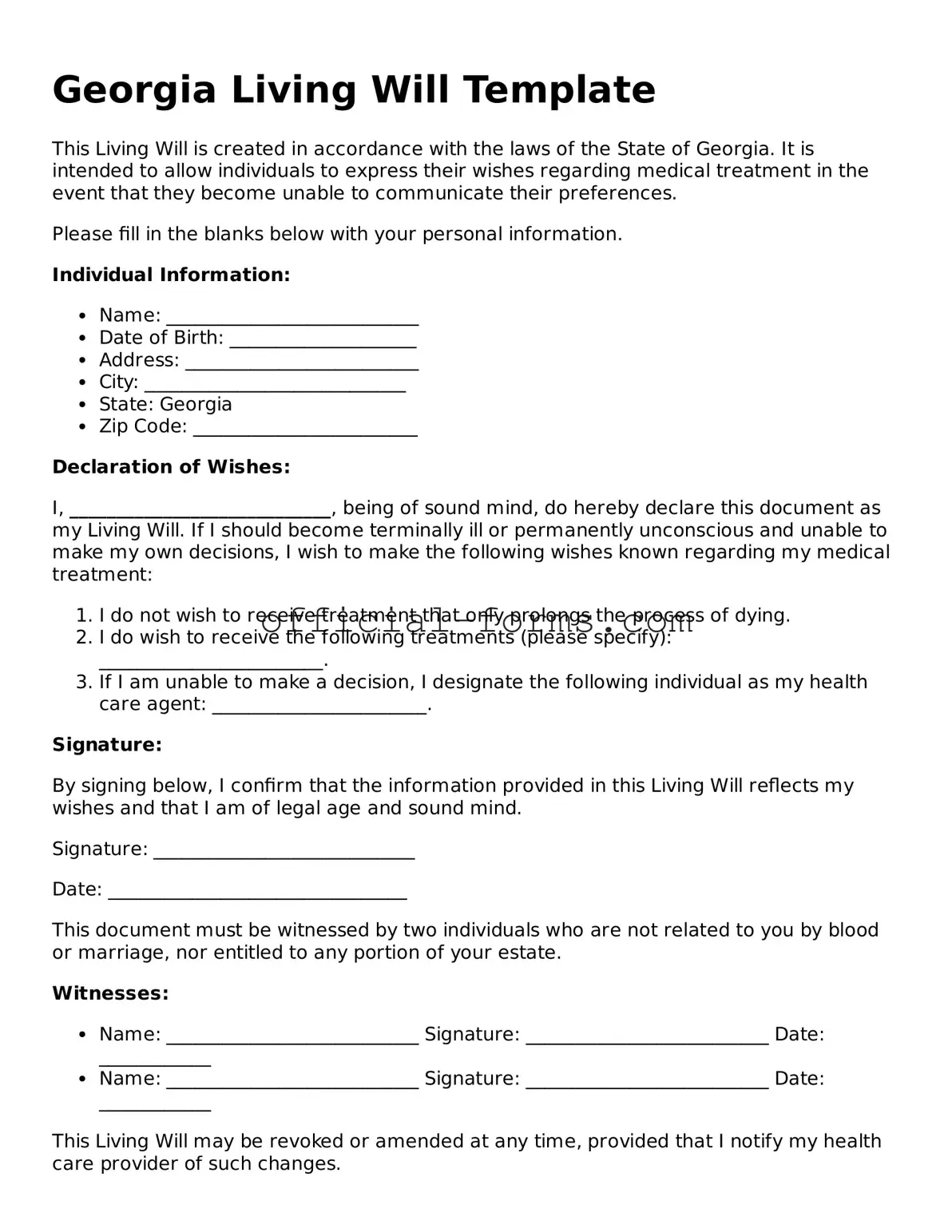Completing a Georgia Living Will form is a critical step in ensuring that one’s healthcare preferences are honored in the event of incapacitation. However, individuals often make several common mistakes that can undermine the effectiveness of this important document. Awareness of these pitfalls can help ensure that the form accurately reflects the individual’s wishes.
One frequent error is failing to specify preferences clearly. The language used in the form should be direct and unambiguous. When individuals use vague terms or general statements, it can lead to confusion among healthcare providers and family members. Clarity is essential to convey the specific medical treatments or interventions one wishes to accept or decline.
Another mistake involves neglecting to date the document. A Living Will should include a date to establish its validity. Without a date, there may be uncertainty regarding which version of the document is the most current. This oversight can result in outdated wishes being followed, rather than the individual’s current preferences.
Some individuals fail to sign the Living Will in the presence of witnesses, which is a requirement in Georgia. The form must be signed by the individual and two witnesses who are not related to the individual and do not stand to gain from the individual’s estate. Skipping this step renders the document invalid.
Additionally, people sometimes overlook the importance of discussing their wishes with family members. While the Living Will serves as a legal document, having open conversations with loved ones ensures that everyone understands the individual’s preferences. This dialogue can prevent conflicts and confusion during emotionally charged situations.
In some cases, individuals may forget to review and update their Living Will regularly. Life circumstances change, and so do healthcare preferences. It is advisable to revisit the document periodically, especially after significant life events such as marriage, divorce, or serious health changes.
Another mistake involves using outdated forms. Laws and regulations can change, and it is important to use the most current version of the Georgia Living Will form. Utilizing an outdated form may lead to legal complications or an inability to enforce the individual’s wishes.
Moreover, individuals may neglect to keep copies of the completed form in accessible locations. It is essential to provide copies to healthcare providers and family members. Without easy access to the document, there may be delays in honoring the individual’s wishes during critical moments.
Lastly, some individuals may not fully understand the implications of the choices they are making on the form. It is crucial to educate oneself about the medical treatments and interventions available, as well as their potential outcomes. This knowledge allows for informed decision-making that truly reflects personal values and preferences.

